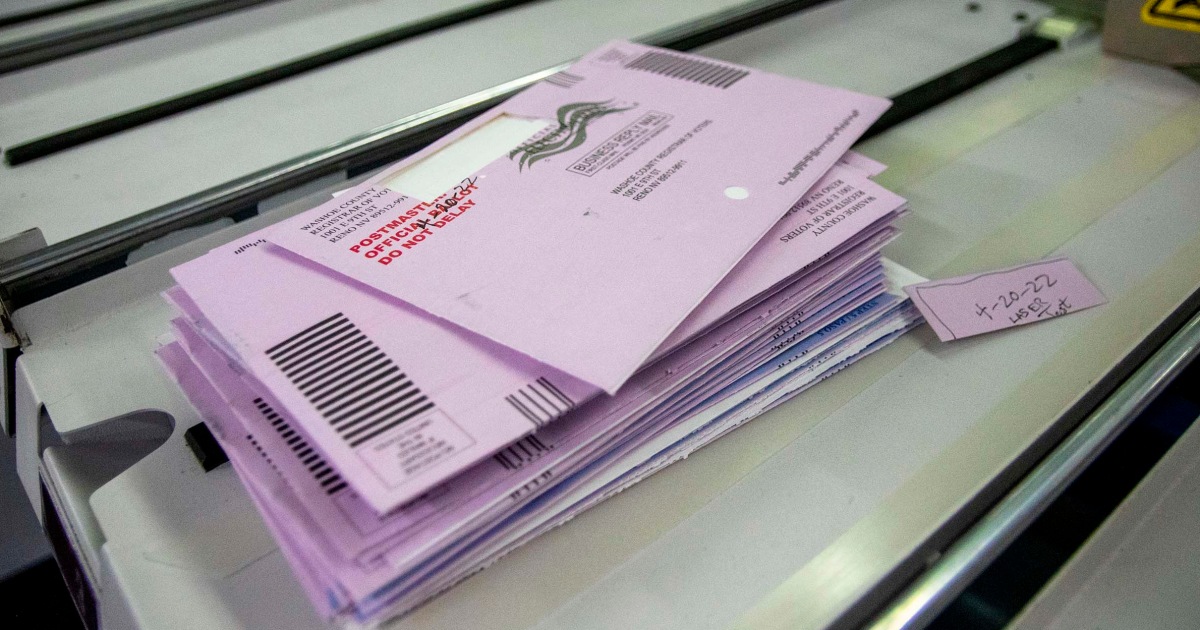Another GOP voter gets a light sentence after committing fraud

After the 2020 elections, a Phoenix woman named Tracey Kay McKee was asked about allegations that she cast a ballot for a deceased mother. McKee complained to an investigator that “there’s no way to ensure a fair election” because fraud “is going to be prevalent as long as there’s mail-in voting.”
The Arizonan added, “I don’t believe that this was a fair election. I do believe there was a lot of voter fraud.”
As it turns out, McKee was in a position to know all about voter fraud — because she committed it.
In early October 2020, just a couple of days before early ballots were mailed to voters, McKee’s mother died. Soon after, she submitted two ballots, including one for the deceased.
The Republican voter was caught and charged, and despite her earlier denials, McKee eventually pleaded guilty. The Associated Press reported on her relatively light sentence:
A judge in Phoenix on Friday sentenced a woman to two years of felony probation, fines and community service for voting her dead mother’s ballot in Arizona in the 2020 general election. But the judge rejected a prosecutor’s request that she serve at least 30 days in jail because she lied to investigators and demanded that they hold those committing voter fraud accountable.
If these circumstances seem at all familiar, it’s not your imagination.
Last week, a New England Republican pleaded guilty to voting in both New Hampshire and Massachusetts in the 2016 general election. He was ordered to pay a fine.
Last month, voters in a Republican stronghold in Florida also pleaded guilty after voting in the Sunshine State, while also trying to cast absentee ballots in other states. The Orlando Sentinel reported that the admitted fraudsters “will avoid further punishment if they regularly meet with a supervising officer, complete 50 hours of community service and attend a 12-week adult civics class, among a handful of other requirements.”
They have a fair amount of company. Revisiting our earlier coverage, it was a year ago this week when we learned about Pennsylvania’s Bruce Bartman, who cast an absentee ballot in support of Donald Trump for his mother — who died in 2008. Bartman pleaded guilty to unlawful voting, conceded he “listened to too much propaganda,” and was sentenced to five years’ probation.
About a month later, Edward Snodgrass, a local Republican official in Ohio, admitted to forging his dead father’s signature on an absentee ballot and then voting again as himself. NBC News noted at the time that Snodgrass struck a deal with prosecutors and was sentenced to three days in jail and a $500 fine.
In August 2021, we learned of a Pennsylvania man named Robert Richard Lynn, who used a typewriter to complete an absentee ballot application on behalf of his deceased mother. After getting caught, he faced up to two years behind bars. Lynn instead received a sentence of six months’ probation.
Nevada’s Donald Kirk Hartle, meanwhile, became a cause celebre in Republican circles when he said someone cast a ballot for his late wife. In November 2021, we later learned that it was Hartle who illegally voted for his late wife, lied about it, got caught, and ultimately pleaded guilty. As part of a plea deal, he received a yearlong probation.
And now there’s Arizona’s Tracey Kay McKee, who also received a light sentence, despite the appeals of prosecutors.
Stepping back, there are a couple of relevant angles to keep in mind. The first is the degree to which these incidents don’t bolster conspiracy theorists’ claims. “See?” many on the right will likely say. “Voter fraud is real; people keep casting illegal ballots; and sweeping new voter-suppression laws are fully justified.”
As we’ve discussed, that remains the wrong response. What these examples actually show is that when would-be criminals try to cheat, the existing system is strong enough to catch and prosecute them. This doesn’t prove the need for new voter-suppression laws; it helps prove the opposite.
But let’s also again spare a thought for Texas’ Crystal Mason, who cast a provisional ballot in the 2016 elections while on supervised release for a federal conviction. She didn’t know she was ineligible to vote, and her ballot was never counted, but Mason — a Black woman — was convicted of illegal voting and sentenced to five years in prison.
And yet, the aforementioned white voters received vastly more lenient sentences, despite the fact that they knowingly hatched schemes to cast illegal ballots.
They were caught and charged, but judges didn’t exactly throw the book at them.


